As the election draws nearer, the gun groups are ramping up their spending.
The NRA has started a new million-dollar campaign. It’s targeting the same six battleground Senate races it has been focused on all year. Contributing Writer Jake Fogleman takes an exclusive look at what candidates they’re zeroed in on and what their messaging is going into the closing weeks.
The NRA’s main opponent, Everytown for Gun Safety, has begun to take a different approach. While it continues to spend on some of the same Senate races, it is also branching off into state races. One is key to who will control the Colorado state legislature, but the other two races are not directly related to guns at all.
News from the courts hasn’t slowed down. This week saw gun-rights advocates take a loss in California. I examine the reasoning behind the ruling, why it could be a problem for gun-rights activists, and why it also might not last long.
Plus, Cam Edwards of Bearing Arms joins the podcast to break down what to watch as the 2022 midterms approach.
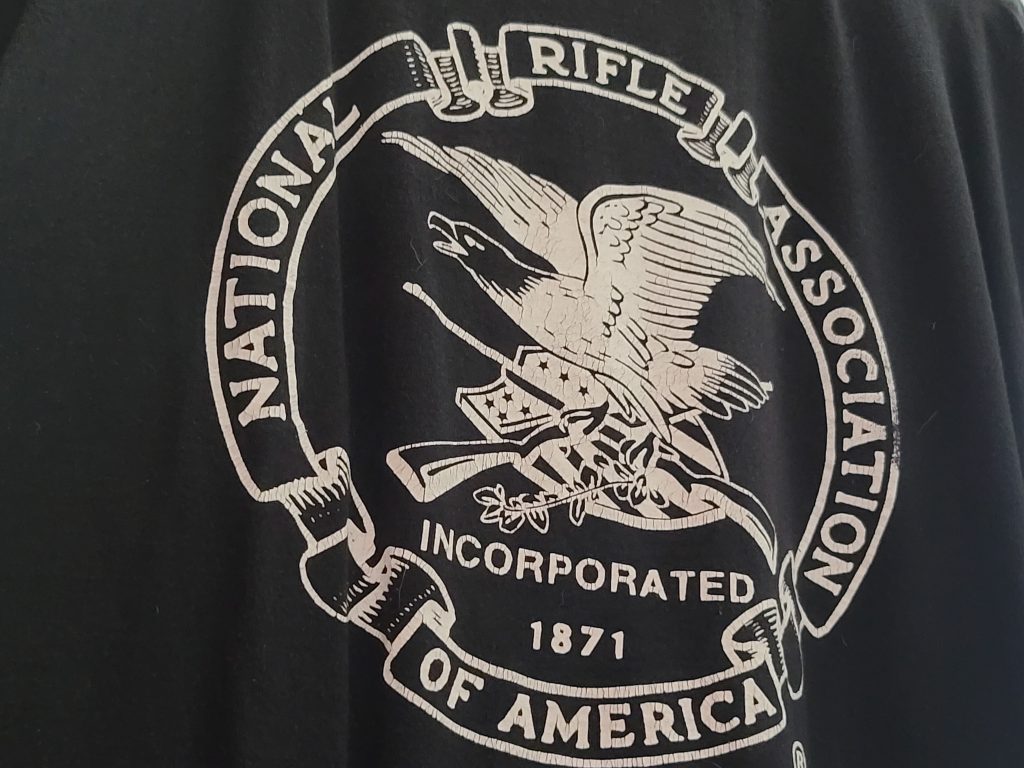
NRA Starts New $1.1 Million Spending Spree in Swing State Senate Races
By Jake Fogleman
The nation’s largest gun-rights group is stepping up its campaign ad spending less than two weeks before the midterm elections.
The NRA’s Super PAC is planning over $1.1 million in digital ad spending across multiple battleground states in the coming days, according to its latest Federal Election Commission (FEC) filings. The ads, set to release on Thursday, are slated to run in support of the Republican Senate candidates in Wisconsin, Pennsylvania, Nevada, North Carolina, Georgia, and Arizona.
The planned buy comes on the heels of a series of digital, TV, and radio ads from the Super PAC that have repeatedly targeted the same six Senate races. They also arrive against the backdrop of ongoing internal strife at the NRA. Numerous legal battles and allegations of corruption against the NRA’s leadership have coincided with a steep decline in revenue and falling membership, according to an internal report published by The Reload earlier this year. As a result, the group’s spending on legal fees ballooned to over $48 million in 2021, eclipsing the spending dedicated to the group’s other priorities like political spending, gun-safety training, and member outreach. Whether the NRA can effectively impact tight races while dealing with that turmoil could determine how influential the group remains moving forward.
Click here to continue reading.
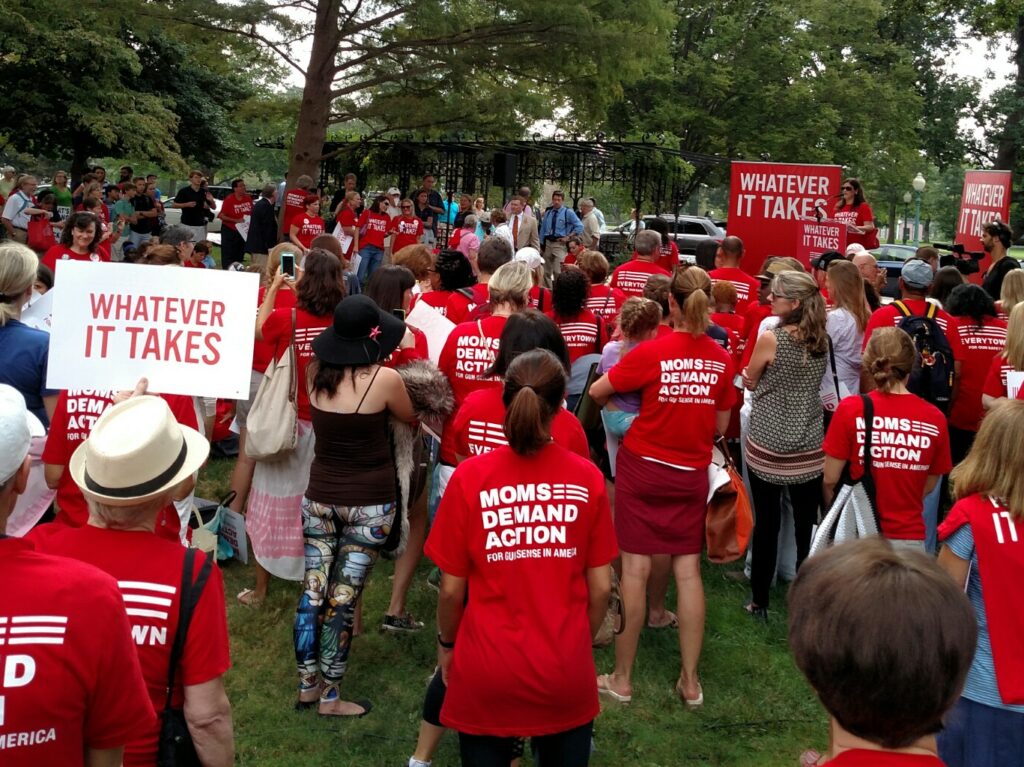
Leading Gun-Control Group Diverts Spending to State Secretary Races
By Stephen Gutowski
Everytown for Gun Safety is moving away from its core mission as the election approaches.
The country’s largest gun-control group, funded in large part by some of its richest billionaires, is investing a million dollars into a pair of state secretary races. It is targeting Republican candidates in Arizona and Michigan who have endorsed conspiracy theories surrounding the 2020 election. The group is spending in the races despite the positions having no control over gun policy.
“Everytown is going to make sure voters know that far-right candidates like Mark Finchem and Kristina Karamo, who deny election results and cozy up to extremist groups, are putting both our democracy and our lives at risk,” John Feinblatt, the group’s president, said in a statement.

Everytown Spends Big to Hold Colorado State Senate
By Jake Fogleman
The nation’s largest gun-control group is pouring big money into a local Colorado statehouse race.
Everytown for Gun Safety announced a $1 million investment to boost state Senate candidate Tom Sullivan (D.). The investment, which matches how much they’ve spent in some of the most significant federal elections, is aimed at keeping Colorado’s state legislature in Democratic hands. It is part of a larger $2.7 million Colorado ad buy against Republican candidates at the federal and state level, especially Sullivan’s opponent Tom Kim.
“Everytown is incredibly proud to defend the gun sense majority in the Colorado statehouse, especially against candidates like Tom Kim who will put gun lobby profits ahead of public safety,” John Feinblatt, the group’s president, said in a statement.
Click here to read the full story.
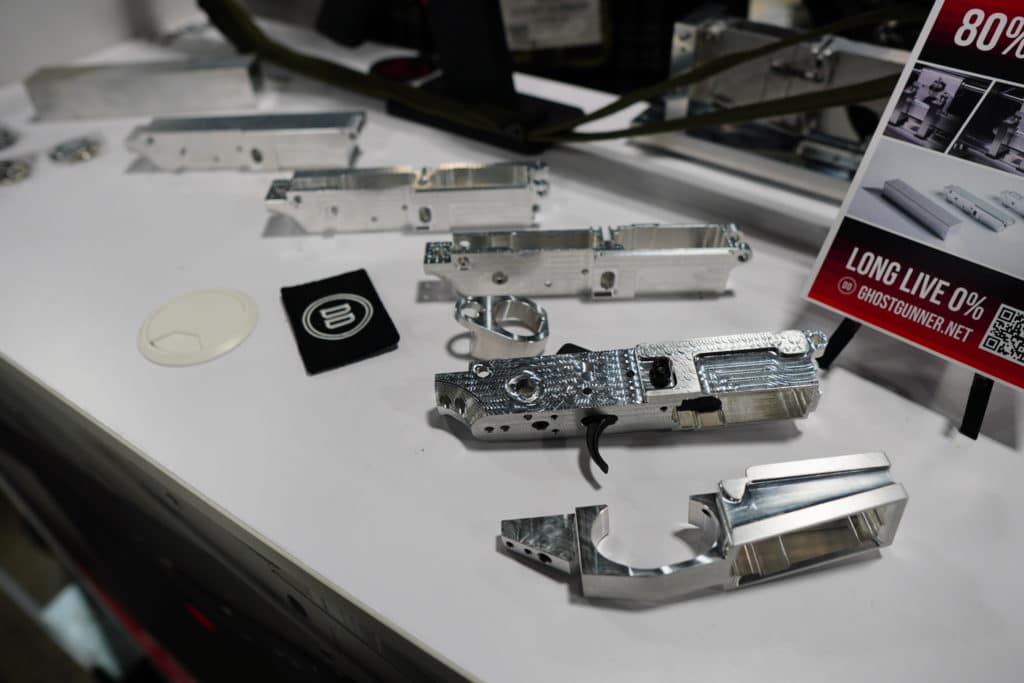
Federal Judge Upholds California ‘Ghost Gun’ Ban, Rules Gun-Making Not Protected by Second Amendment
By Stephen Gutowski
California’s attempt to stop people from building their own firearms can move forward.
That’s the decision federal district judge George H. Wu, a George W. Bush appointee, delivered late last week. Wu determined the Second Amendment’s text does not cover the building of firearms, ruling against gun-mill maker Defense Distributed (DD) in its challenge of AB 1621. The judge argued California’s law banning the possession of unserialized firearms, as well as parts or specific tools used to make them, does not run afoul of gun-rights protections under the Supreme Court’s Bruen decision.
“Though it leads with a recognition of the primacy of Bruen’s ‘plain text’ point, DD seeks in its opening brief to jump ahead in the analysis to a historical/tradition assessment (and to jump ahead in Bruen to that decision’s discussion of how to conduct such an assessment),” Judge Wu wrote in his ruling rejecting a request for a preliminary injunction against the law. “But it has effectively attempted to avoid the necessary threshold consideration – does the ‘Second Amendment’s plain text’ cover the issue here? No, it plainly does not. AB 1621 has nothing to do with ‘keep[ing]’ or ‘bear[ing]’ arms.”
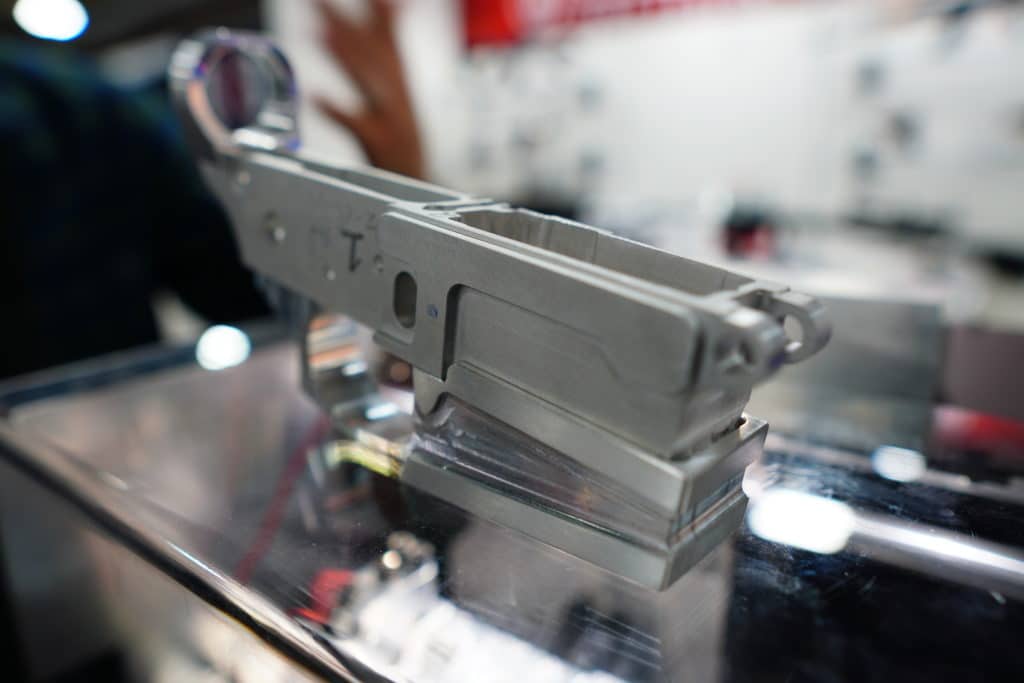
Analysis: Federal Judge Finds ‘One Weird Trick’ to Uphold Gun Law Despite Bruen [Member Exclusive]
By Stephen Gutowski
A federal judge just opened a new front in the post-Bruen judicial war over the nation’s gun laws.
Last Friday, Judge George H. Wu upheld California’s attempt to ban possessing unserialized homemade guns and the tools to make them. The reasoning behind the ruling is more interesting than the outcome of the case. Wu found the conduct in question was simply not covered by the plain text of the Second Amendment.
He determined that since the Second Amendment only explicitly mentions the right to “keep and bear” arms, making them (and, presumably, selling or buying or shooting or cleaning or modifying or what have you) is not covered. Therefore, boom, no need to examine whether the regulation has any historical analogue as required under Bruen. No need to look any further.
“Though it leads with a recognition of the primacy of Bruen’s ‘plain text’ point, DD seeks in its opening brief to jump ahead in the analysis to a historical/tradition assessment (and to jump ahead in Bruen to that decision’s discussion of how to conduct such an assessment),” Judge Wu wrote in his ruling rejecting a request for a preliminary injunction against the law. “But it has effectively attempted to avoid the necessary threshold consideration – does the ‘Second Amendment’s plain text’ cover the issue here? No, it plainly does not. AB 1621 has nothing to do with ‘keep[ing]’ or ‘bear[ing]’ arms.”
It’s like a “one weird trick that plaintiffs hate” theory of Bruen.
If you’re a Reload Member, click here to read the rest. If not, join today before our 20% OFF SALE ends!
Podcast: Looking Ahead at the Midterms With Bearing Arms’ Cam Edwards
By Stephen Gutowski
The election is fast approaching, and they will determine control of Congress as well as the future of federal gun legislation.
So, this week, we’ve got Cam Edwards of Bearing Arms on the show to talk about the impact of guns on the midterms. Or, really, whether they will have much of an impact. After all, the most recent polling shows Americans have lost interest in the issue as the election draws nearer.
Plus, I explain why I decided to become a CNN analyst and what my role is going to look like.
You can find the show on your favorite podcasting app or by clicking here. You can also watch the full episode on our YouTube channel. Reload Members get early access on Sunday, and everyone else can listen to the show when it goes public on Monday.
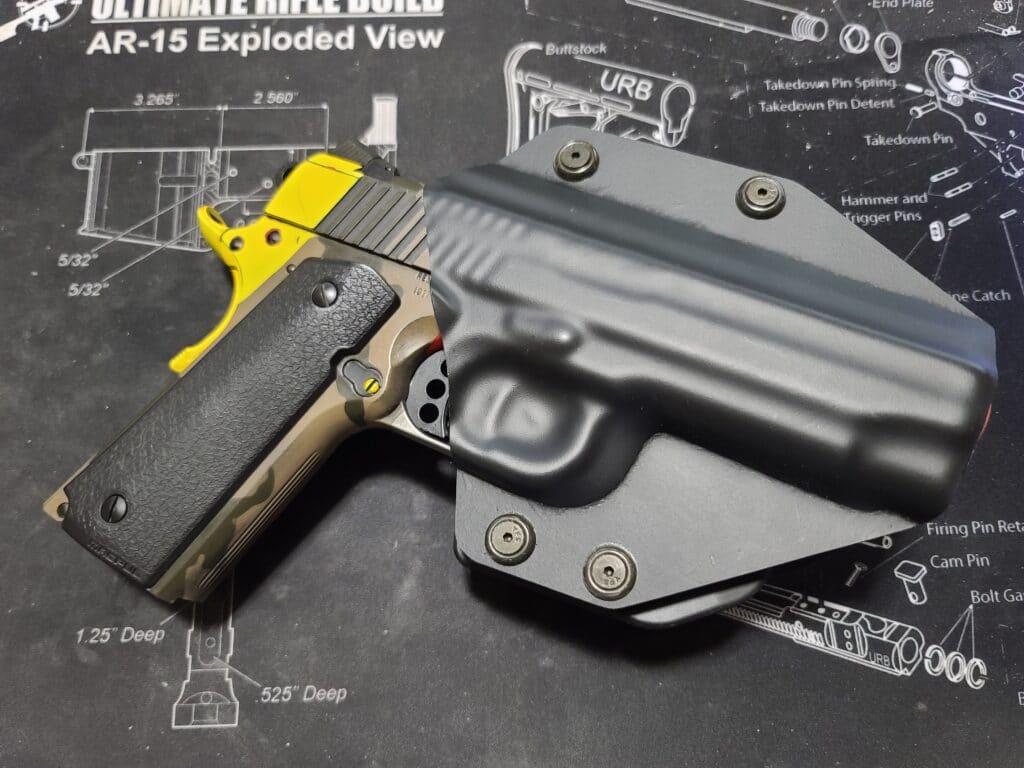
Analysis: The New York Gun-Carry Law’s Grim Start in Court [Member Exclusive]
By Jake Fogleman
New York’s new gun law, meant to rebuff the Supreme Court, is already having a rough go of it in federal court.
Just two weeks after a federal judge ruled broad swaths of the Concealed Carry Improvement Act (CCIA) unconstitutional in an opinion granting a Temporary Restraining Order (TRO), another federal judge did the same for the law’s felony prohibition on licensed gun carry in places of worship.
“The nation’s history does not countenance such an incursion into the right to keep and bear arms across all places of worship across the state,” Judge John Sinatra wrote in his opinion granting a TRO. “The right to self-defense is no less important and no less recognized at these places.”
Unlike the previous TRO granted against portions of the law, Judge Sinatra declined to add a temporary stay to his ruling. That means licensed gun carriers in the state are now free to carry a firearm for self-defense while attending church or any other religious institution without fear of committing a state felony. That’s a limited but key win for concealed-carry advocates.
If you’re a Reload Member, click here to read the whole thing. If not, join today for 20% OFF!
Outside The Reload
Ghost Guns Are Causing Chaos in American Courts | Vice | By Keegan Hamilton
The sky won’t fall if more New Yorkers carry guns | New York Daily News | By Robert VerBruggen
St. Louis gunman obtained firearm after family removed it | Bearing Arms | By Tom Knighton
That’s it for this week in guns.
I’ll see you all next week.
Thanks,
Stephen Gutowski
Founder
The Reload






